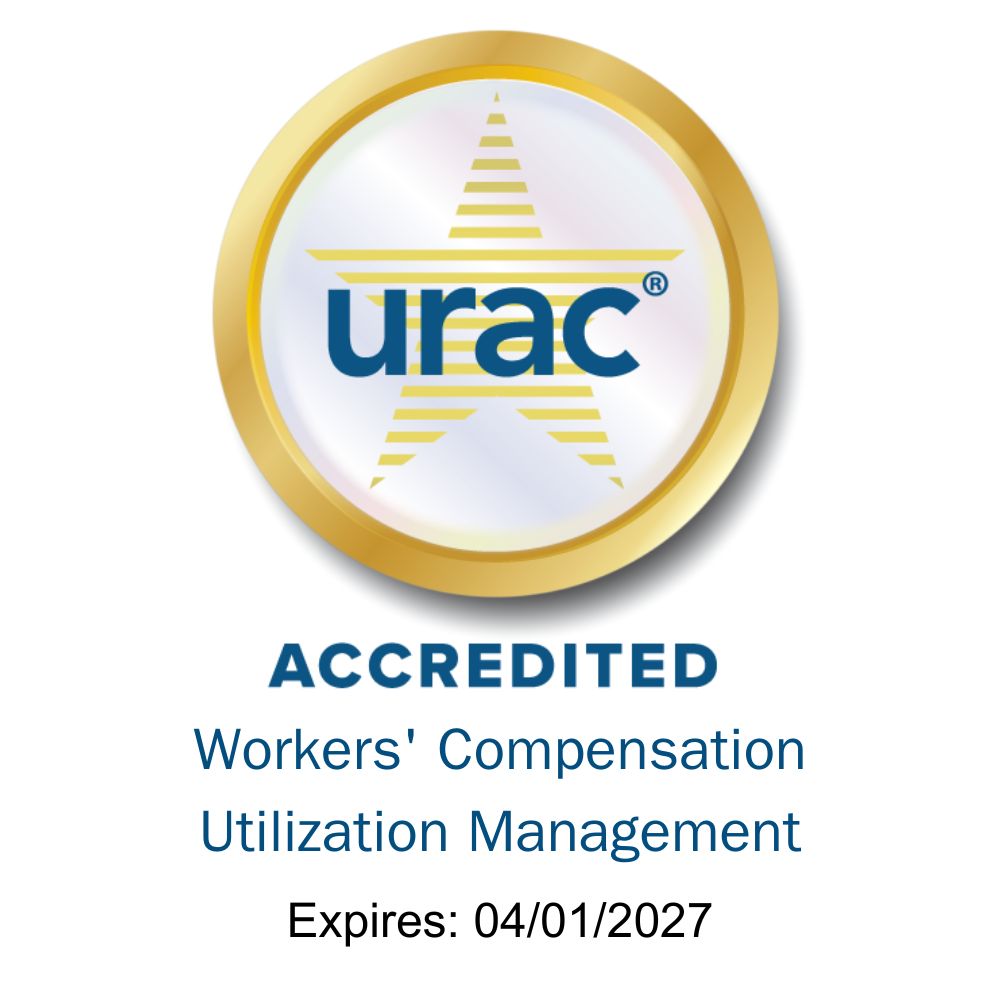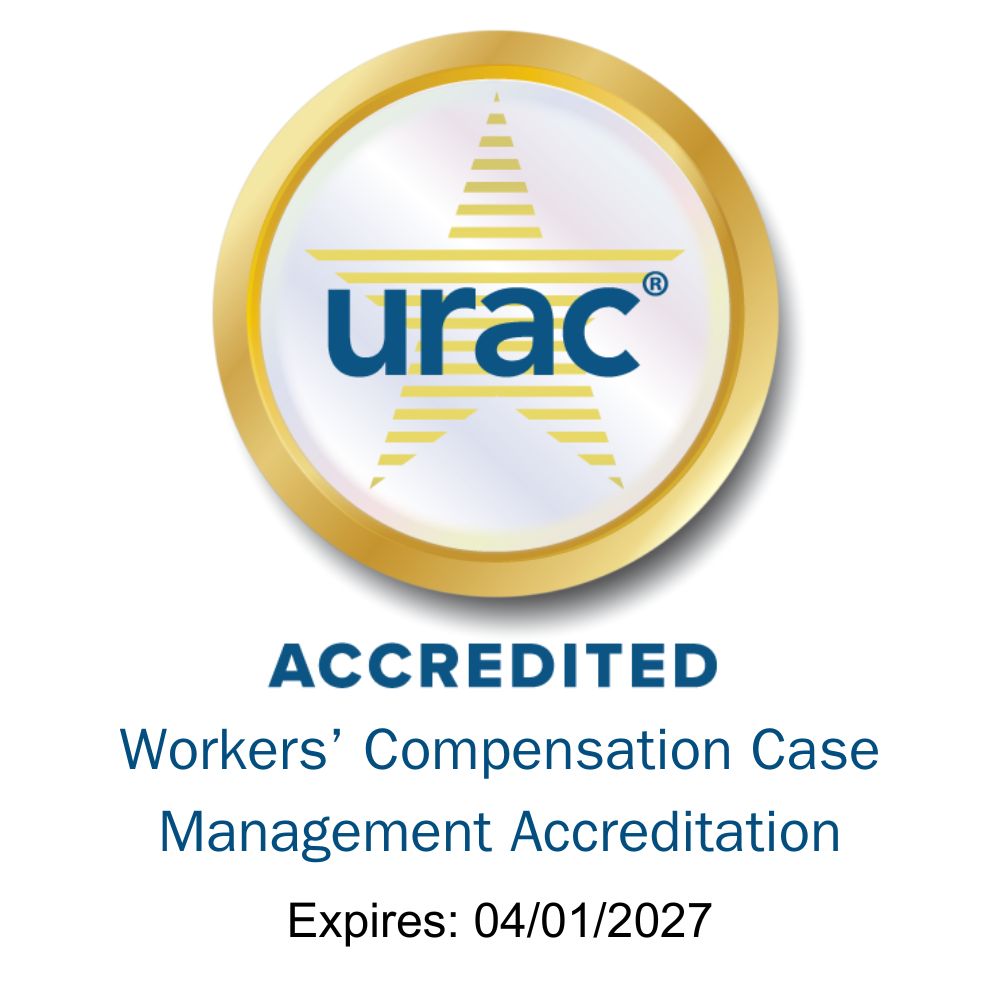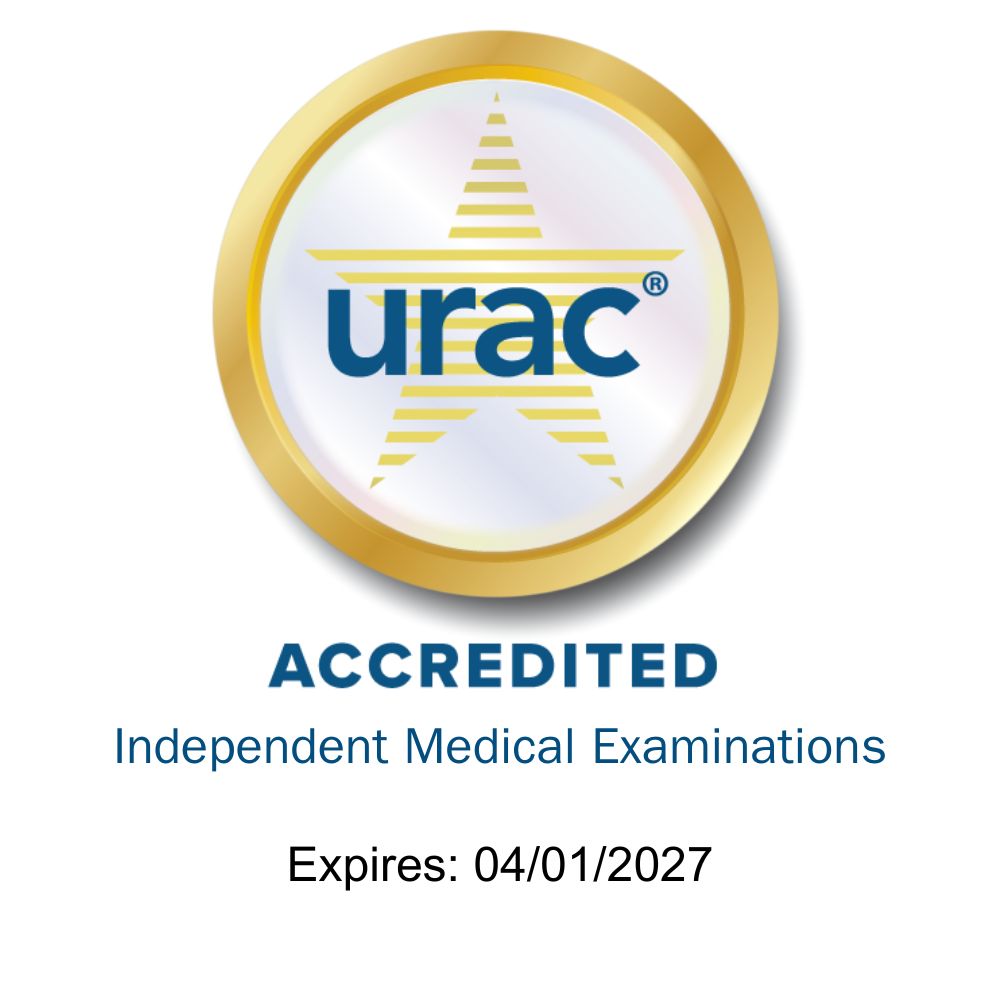Hello and welcome to the first of a four-part podcast compliment to the Mitchell | Genex | Coventry thought leadership eBook, Strategies for Combating Mental Health Challenges in Injured Employees. I’m Tom Kerr, director of communications at Genex Services, and over the course of the next few weeks, I’ll be joined by Mitchell | Genex | Coventry experts Mariellen Blue, National Director of Case Management Services at Genex, Tammy Bradly, Vice President, Clinical Production Development at Coventry, and Nikki Wilson, Director, Pharmacy Product Development at Mitchell, to dig deeper into the issues covered in our eBook.
Tom Kerr (TK): So, let’s get started with our first question that I have for Mariellen Blue. Mariellen, how does mental health factor into a physical workplace injury?
Mariellen Blue (MB): Well, Tom, I feel it's important to understand the overall relationship between mental health and physical injuries really regardless of whether the cause of a physical injury is related to sports, a car accident, a workplace injury, or even a random freak type of accident.
The physical injury and the individual's mental health are very closely linked. Not all physical injuries are going to result in mental health issues. However, many will. Mental health problems that can include anxiety, depression, panic attacks, anger, isolation, insomnia, a lack of motivation, substance abuse, and even post‑traumatic stress disorder or PTSD can develop in people who have sustained serious physical injuries.
In particular, the emotional trauma of incurring the physical injury have increased the risk of developing mental health issues. In turn, poor mental health, especially if ignored and left untreated, can negatively impact the person's ability to recover.
After a physical injury, a person's mental health can be impacted for a variety of reasons. Physical pain, hospitalization, and medical tests and procedures can lead to anxiety, even depression and, for others, PTSD can develop related to the trauma of the injury. These types of mental health triggers are tangible and relatable to most people, but what is often overlooked is the psychological impact of the injury on a person's everyday life.
Worries and uncertainty about their ability to go to work, to go to school, pay their bills, socialize, play sports, perform activities of daily living, and even things like playing with their children can really be a catalyst for the development of mental health issues post‑injury.
TK: And to follow up on that, there seems to be more of a focus on mental health issues in workers' comp now, when in the past, there's been a real aversion to including psychosocial factors in claims. Does stigma surrounding mental health still exist in workers' comp?
MB: Well, that's really a great question, Tom. There is a misconception in workers' compensation that mental health is no longer stigmatized. And, despite society becoming more open to understanding the importance of mental health as a component of an individual's overall well‑being, I really feel the stigma of mental health and its impact on workers' compensation claims does still exist.
Unfortunately for many, mental health has traditionally been considered a pariah in workers' compensation and case management. And people don't want to talk about it, and they rationalize that if they say something about it, then their costs are going to spiral out of control. Really, a key to addressing these misconceptions is education on the relationship between physical and mental health.
There is a connection between the mind, body, and the spirit. And what negatively impacts one typically impacts the other in some manner. In workers' compensation, the physical injury can impact so many areas of that person's life and their personal identity. And that can lead to anxiety, stress, and depression, particularly if not acknowledged and addressed early on in that claim.
Really, when an injured worker feels supported in managing both the physical and psychosocial aspects of their injury, this can really help reduce their level of fear, worry, and anxiety.
TK: Great. And, Tamy Bradly, let's dig into those misconceptions a little here. What misconceptions still exist that case managers, most often have to address in claims?
Tammy Bradly (TB): Yeah, Tom, you know, there are many. but in workers', compensation, I think one of the biggest misconceptions, is that mental health conditions are not work‑related, that it's a personal problem. You know, I think there are different ways to look at mental health issues. first, can they, predispose an injury?
Absolutely, but that preexisting condition can be exacerbated, as a result of the additional stressors and anxiety that can come with being injured. Also, oftentimes mental health issues, they may not be preexisting or, the term we use, "comorbid."
But as a result of the physical injury, they may become a secondary diagnosis. Underlying concerns around things like fear of having a full recovery, will they be able to go back to their, pre‑injury job?
Fear of re‑injury. They may be suffering from financial issues as a result of a reduced income. All these things can create real stress and anxiety for people and potentially can escalate into the need for evaluation and potential treatment.
And there are states that do recognize mental health diagnoses, whether they are with or without a physical injury as being a primary compensable injury. You know, with the recent ad in a number of states that we're seeing for coverage for PTSD and other related mental health conditions, for first responders do think we're probably going to start seeing more of these claims, being accepted into workers' comp and probably going to be dealing with them from a case management perspective, uh, on a much more frequent basis.
TK: Good points there, Tammy. And, Mariellen, you had mentioned earlier that physical injuries often impact the injured employee’s mental health, but is that psychosocial aspect of the injury often neglected in workers' comp claims?
MB: Yes. And, and this is really another common misconception, that only workers with preexisting mental health issues are going to have psychosocial components to their claims.
A common misconception in workers' compensation is that in order for behavioral health issues to impact a claim, either the injury has to be catastrophic, such as a spinal cord injury or a traumatic brain injury, or that the injured worker had preexisting mental health issues.
Many people believe that less severe injuries, such as a broken bone or low-back pain, won't lead to negative psychological symptoms in a person who had no previous history of any mental health issues. But there's research that shows that it's possible for even minor physical injuries to bring on symptoms of anxiety and depression in individuals who are otherwise mentally stable. There was a study of 332 workers who experienced work‑related musculoskeletal injuries, and it was found that about half experienced symptoms of depression during that first year after their injury.
In workers' compensation, it's really important to remember that having psychosocial issues doesn't mean that individual has a true psychiatric disorder. Instead, they typically could be exhibiting minor cognitive distortions which relate to how they think and feel about their current situation and the impact of that injury that it's having on really their everyday life.
Developing symptoms of anxiety, stress, and depression after a minor injury, such as a broken bone, is something that's very common. And some psychologists have even nicknamed this type of adjustment disorder broken bone depression. And, for many, this type of depression is caused by the disruption of the workplace injury that it brings to their lives, impacting their everyday mood, work, relationships, and activities of daily living.
And, I will interject that I had personal experience with this about two years ago. I had been on vacation and, on the first day, I broke my right leg, pretty badly. I was pretty much in treatment and a cast and then a brace for about two-and-a-half months. I couldn't drive. I couldn't go shopping. I had to work from home, and that's when working from home was not as common as it is today. And I started to really not feel myself. I was feeling anxious. I was stressed. I was snapping out at other people. Sometimes, I felt like I had a brain fog.
And I will tell you, me being a nurse, I started doing a lot of research. And that’s when I first read about broken bone depression. It’s something that's very common in athletes who suffer injuries such as that. And just knowing that what I was experiencing was very common and very normal helped me tremendously.
And I really believe that in workers' compensation, that's something that as all of us, particularly those of us who are case managers or in the healthcare field to let injured workers know that these things that they're feeling, that they're feeling stressed, that they're feeling anxious, that they are depressed, we need to recognize that and also give them that reassurance that this is something normal. And that we will work with them to get through it.
TB: You know, Mariellen, I'd like to add something to that. Very similar, but I think oftentimes, the misconception is that once the body is healed that any of these mental health issues, concerns, anxiety that we have will go away. I think we all would agree that it's easy enough to repair simple fracture. We immobilize, we rehabilitate, we get that person back to work, right? Sounds pretty simple. But, dealing with mental health diagnoses, as you just pointed out, is not always that cut‑and‑dry.
We speak to viewing the injured employee from a holistic perspective, looking beyond that primary physical injury. And you really have to do that and adopt this type of practice. Because if you do, it's likely that you may identify some potential mental health issues or other underlying psychosocial issues that can potentially prolong return‑to‑work long past when that physical healing is completed. You can't ignore the issue because it's not going to go away when the physical injury's resolved.
Sometimes, the last hurdle that injured employees really have to overcome is related to their mental well‑being, rather than their physical injury. Employees feel emotionally unprepared potentially to return to work, and they may mistake this anxiety for physical symptoms of pain.
This isn't good for employees or the employer. Putting someone back in a working environment when they're not mentally prepared to return could lead to presenteeism, reduced productivity, or even potential re‑injury.
So, these are all things that we need to be conscious of as we're working with these individuals. So we're not just helping them through the recovery process, but we're also helping prepare them for that eventual return to work.
TK: At this point, I want to bring Nikki Wilson in to talk about misconceptions related to pharmaceuticals. Nikki, when it comes to pharmaceuticals, what types of misconceptions do you see in workers' comp?
Nikki Wilson: I think this is an important part of the puzzle that is the treatment of mental health. And, as Tammy and Mariellen have been describing, there's often a lot of changes that come along with an injury and impacts to mental health and adding a medication that a patient may not even understand why they might need it or worry about the stigma of taking something psych‑related can be a challenge to overcome with patients.
It's adding one more thing that makes them feel a little bit less than normal, having a need to rely on a pharmaceutical to try to get them through whatever they're working through.
I mean, in our society, we very much often have this mind‑over‑matter mentality that we can fix these ourselves. And, really, when it comes to mental health, it's a challenge because treatment for mental health is not a straightforward science. There is no one‑size‑fits‑all in the approach to treatment, and there's no quick fix.
It's all very much about the balance of various chemical messengers that are within the body that can alter mood. There's been a lot of research into what's going on within the human neural system in order to try to understand how we might be able to add just another tool to the treatment of that individual. So, everything is very much customized to that particular patient.
And, I think one of the ways that we can approach these misconceptions is to help manage expectations that patients might have. Address their concerns, explain what the prescription is intended to do and its place in treatment, what they can expect as far as that goes. So, understanding about how those drugs can help, naturally balance out those neurotransmitters produced by our body that can help in things like depression and anxiety, that they may be experiencing and then how they can work, in concert with the other things that they're doing to try to get back to good mental health, understanding that it may not be tomorrow that they feel better.
It could be a long sort of titration up to response. That's very typical of these drugs where, over several weeks, we've got to get to the dose that works best for that individual. Sometimes, side effects can be tricky to manage, and there could be a lot of changes required before we find that perfect balance.
And the final thing that I think is a misconception is once that patient feels better, they'll often discontinue their medications on their own or feel they don't need them anymore. So that can also be a dangerous practice when it comes to managing mental health.
Just really education on what to expect with treatment. What does it mean to be using that medication? What does it not mean? And then, focusing on the positives, on recovery, how this will help them return to work or return to function. Those are all really good ways to address those concerns and misconceptions about pharmaceuticals and mental health.
TK: Thank you, Mariellen, Tammy, and Nikki for providing your insights. In the next podcast, we’ll discuss how addressing mental health early in claims affects costs. Until then, check out the eBook, Strategies for Combating Mental Health Challenges in Injured Employees. Until then, thanks for listening.







